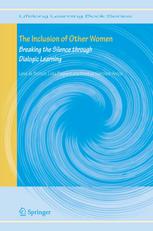

Most ebook files are in PDF format, so you can easily read them using various software such as Foxit Reader or directly on the Google Chrome browser.
Some ebook files are released by publishers in other formats such as .awz, .mobi, .epub, .fb2, etc. You may need to install specific software to read these formats on mobile/PC, such as Calibre.
Please read the tutorial at this link: https://ebookbell.com/faq
We offer FREE conversion to the popular formats you request; however, this may take some time. Therefore, right after payment, please email us, and we will try to provide the service as quickly as possible.
For some exceptional file formats or broken links (if any), please refrain from opening any disputes. Instead, email us first, and we will try to assist within a maximum of 6 hours.
EbookBell Team

4.0
76 reviewsWhy we are the “other women” This book recognizes a reality, our reality, that of the “other women”. Why are we the “other women”? Because we are women who, given the fact that we have not had the chance to obtain an academic education, were silenced and have remained outside of the spaces for public debate about women. This exclusion is worse if we are immigrants or belong to an ethnic minority. Those of us who are housewives, domestic workers or factory workers, because we do not have academic degrees, do not have spaces in which our voices can be heard, where we can say what we want. At times women whose voices are heard, because they have been able to go to university or have been leaders in the feminist movement, speak for all of the other women who have not been able to get a formal education, without asking us what it is we really want or think. Through our participation in educational and cultural centers and associations, many of us have formed associations and women’s groups. In this way, we are creating spaces where we can discuss issues that we are concerned about: solidarity among women, demands for better widows’ pensions, exploitation of domestic workers, etc. And we are organizing ourselves to get our voices, demands and opinions about these issues out there into the public debate.